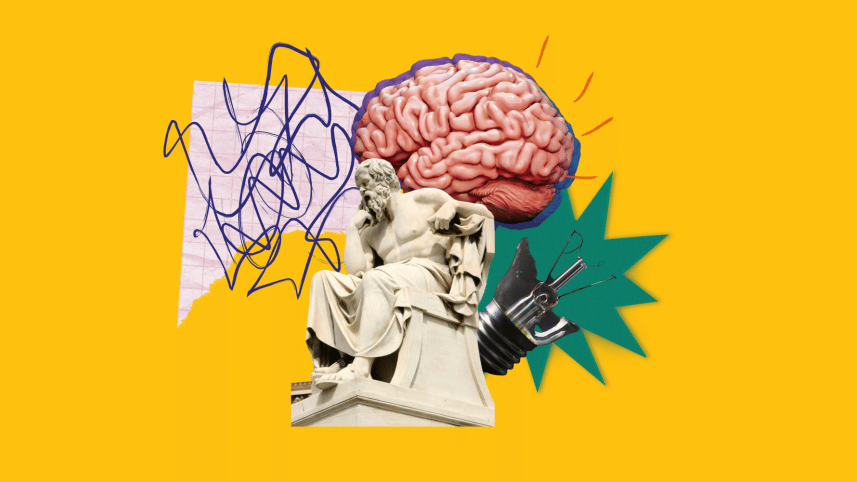Critical thinking in our curriculum: Too much or too little?

Critical thinking has always been emphasised heavily in education and with good reason. It is known to improve creativity, foster curiosity and enhance decision-making. Another benefit of mastering this ability is that it's universally relevant across all professions and fields.
Being a critical thinker has ramifications outside of academic and professional surroundings as well. It's easier than ever for fake news to spread and more than a little difficult to determine what is correct, given the overwhelming number of information sources. The amount of misinformation circulating around the pandemic should serve as an eye-opener in this regard.
There has been constant debate about whether the quality of our national education is up to par with global standards, as well as attempts to reinvent it. Thankfully, the NCTB has been going through a much-needed overhaul, starting from 2022.
Here's a little recap: in the revised framework, there will be no public exams before class 10 and no exams of any kind for students up to class 3. SSC exams will consist of five subjects, while HSC will be held in two phases. The division of science, humanities and business studies will occur from class 11 instead of 9. All these revisions are reportedly devised to facilitate holistic learning and improve creativity and competence.
The current creative question system was introduced in 2008 to promote critical thinking and discourage rote memorisation. Whether it has achieved that goal is debatable. The answer may be leaning towards a firm no, considering the amount of criticism the curriculum has received over the years.
Infrequent revisions have exacerbated its existing flaws like outdated syllabuses and textbooks riddled with errors. The creative questions are usually creative in name only, since educators encourage memorisation over all else, and that is what students are judged on, not their analytical capacity. The extent of memorisation unfortunately stretches to subjects like English and Bangla as well.
The system also fails to give teachers the necessary guidance and training required to make exams that test students' critical and analytical thinking ability. To make matters worse, there are no universal guidelines to mark these questions provided to examiners either.
Replacing memorisation culture with a more updated system is a necessary goal, but whether it's practical in our geographical context is a glaring issue. While students in Dhaka are equipped with the best schools, teachers, and coaching centres, students outside of the capital barely receive a fraction of the academic support. The more you move towards the rural side of our country, the further the discrepancy widens. There are already doubts about whether the recent changes can be implemented in these areas due to lack of space, funding, and technology. Further modernisation might put strain on schools which are already struggling.
Some of the recent changes to the national curriculum have been welcome ones. Whether they affect everyone equally remains to be seen.
References:
1. The Daily Star (January 1, 2023). New curriculum rolls out, preparations not enough
2. Dhaka Tribune (January 7, 2023). Can the new curriculum end old-school memorisation?
Ziba Mahdi is your resident pessimist. Cheer her up at mahdi.ziba@yahoo.com



 For all latest news, follow The Daily Star's Google News channel.
For all latest news, follow The Daily Star's Google News channel. 

Comments